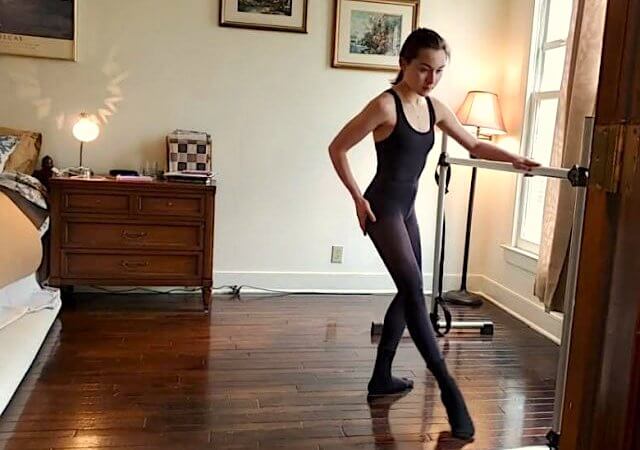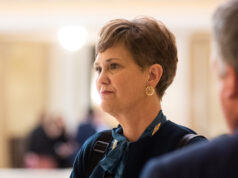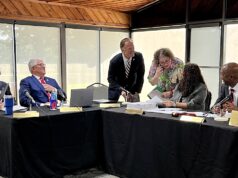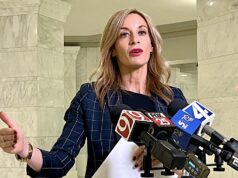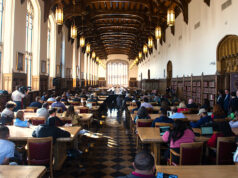
Owing to the COVID-19 pandemic, universities around the nation have moved classes online and have even cancelled spring graduations. However, while the adjustment may have been stressful to students and faculty, some have decided to look at the silver linings.
Today starts the second week of online-only classes for University of Oklahoma, Oklahoma State University and other state college students, some of whom are still adjusting to what can be dramatic changes to their education experience.
Other Oklahoma higher education institutions such as Oklahoma Panhandle State University and Connors State College have committed to online classes through dates in April, but those decisions could change system-wide.
Hannah LeComte, a senior ballet performance major at OU, said her work load increased by a few hours. In addition to taking a modern dance class via Zoom or Instagram Live, she said she has to film herself doing ballet and upload it to YouTube.
“I have about two to three hours a day still of dance work to do — that’s just technique class,” LeComte said. “So [I am] doing about an hour and a half to two hours of ballet, and then I have a modern class for about an hour everyday after that.”
But LeComte, who is riding out the pandemic with her family in Lexington, Kentucky, said she is OK with learning remotely because she can take her mind off things when she needs to. With help from her younger sister, she was able to figure out recording herself and uploading it to YouTube.
LeComte said the major difficulty she faced during the first week of online classes involved communication with professors.
“We are used to seeing them in person for many hours a day, and now we don’t see them at all,” LeComte said. “So we’re having to correspond a lot through email, and that’s not been the most streamlined process yet for my experience.”
LeComte is double majoring in history and also has an internship with the Journal of Women’s History, which will be housed at OU starting June 1.
“I feel more removed from projects that I’m doing,” LeComte said. “I know the professors are super busy putting all their classes online, so I don’t want to bother them too much with that.”
Before OU shifted the rest of its spring semester to online classes, LeComte was scheduled to present her capstone ballet piece in a Sunday, March 29, performance featuring 12 dancers. But that has been cancelled.
“I’m working on adapting [the capstone]. Initially, I was going write a paper instead, but now I’ve taken some of the dancers — who are able to — we’re going to actually film ourselves doing the choreography,” LeComte said. “I’m going to put my video editing skills to the test and sort of do a ‘dancing apart but together’ project with it and write about how this whole COVID-19 has affected the dance world and creative processes.”
Online classes: Shift not easy for everyone
LeComte’s parents are faculty members at the University of Kentucky, and she said she has witnessed both sides of frustration from students and faculty members.
“I think sometimes students get really frustrated with administration and faculty members especially right now, and I think the whole process will be a lot smoother if there’s more of an understanding on both sides,” LeComte said.
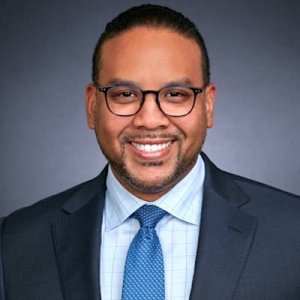
OU Vice President of Student Affairs David Surratt said COVID-19 has significantly impacted the university in many ways.
“I’ll speak for myself only, but my work has had to shift and focus on addressing immediate emergencies impacting students while also trying to forecast systemic long-term impacts,” Surratt said.
An example of immediate emergencies, Surratt said, included helping students return home from abroad since late February, all while working with OU Health Services’ staff of nurses and doctors to ensure capacity for providing screenings and health advice to returning students, faculty and staff to mitigate risks of COVID-19 exposure.
“We then had to coordinate with the College of International Studies team (members), who are still working tirelessly to navigate not only students returning from abroad but also supporting international students who are attempting to make the best decisions they can as travel policies shift and change regularly,” Surratt said.
Because of this, OU’s Housing and Food Services department has remained committed to maintaining operations to support the students who had to stay on campus, Surratt said.
“Like other universities, this has significant financial impacts across the campuses that we also have to pay attention to,” Surratt said. “I suppose the largest impact on me and my colleagues during this public health crisis has been the intense stress of navigating uncharted territory and planning for an uncertain future.”
When it comes to using online classroom tools like Zoom, Surratt said one worry he has is unfairly judging the quality of the educational experience without considering the full context of its implementation during a crisis.
Because of the quick transition to only online classes due to COVID-19, Surratt said he was glad to see the OU provost’s office and deans being supportive of offering a Pass/No Pass option for students.
While Surratt said there wasn’t a clear model to follow, he did keep an eye on what other universities were doing.
“We certainly paid close attention to what colleges across the country were doing along with institutions in the Big 12 and in Oklahoma,” Surratt said. “I was personally on phone calls and texts with counterparts in California, Washington and New York since those were areas hit hardest and earliest with the spread of the virus. That timely input was vitally important in shaping decisions we made here at OU.”
‘It doesn’t feel as bad as it could be’
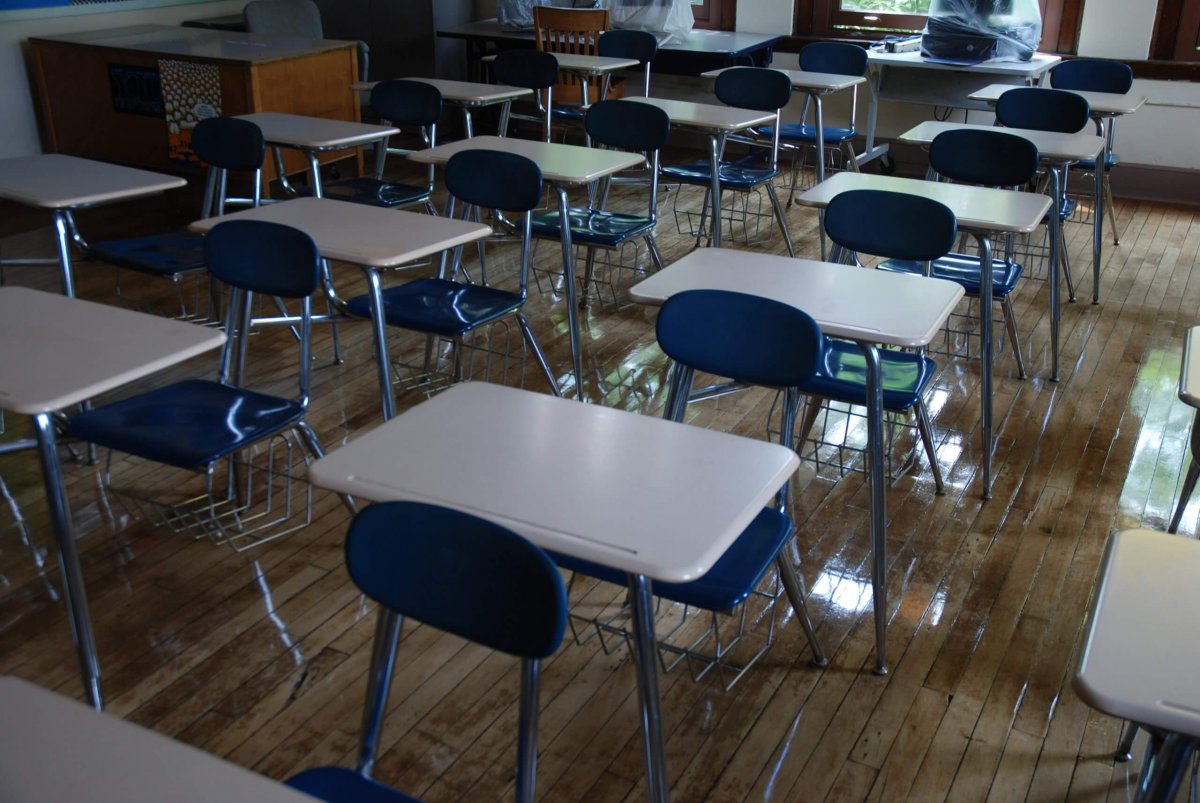
Morgan Anderson, a business management senior at OSU, said there have been some challenges with moving to online classes.
“I feel like some professors have been really prepared for this — seemingly transforming from in-class to online-class really easily — and there are some professors who are having some major difficulties,” Anderson said.
Anderson said she has only been using Zoom to speak with professors or other students. Instead, most class content has been shared through Canvas.
“Our online platform has been a little bit easier,” Anderson said. “I know that some schools have been using Zoom because they don’t have a lot of accessibility online to get in touch with students as soon as possible.”
However, aside from the issues at hand, Anderson said OSU has been really active in communicating and providing a lot of resources if the students need help.
Both OU and OSU have said separately that they have not cancelled spring graduation ceremonies, but instead have postponed them. OU said in their statement that a virtual ceremony may be an option.
Additional personal concerns that OU has heard from students include the financial constraints caused by the COVID-19 pandemic, Surratt said.
“In response to those concerns, we are doing our best to support our students during a challenging time,” Surratt said.
The same financial pressure is being felt by students at OSU and other universities.
Anderson, who is from Carrollton, Texas, is staying in Stillwater to work her job at a small business as a bridal registry coordinator and sales associate.
“My work is still open, but I have not been working as much because I kind of didn’t need as much financial support as much as other people do,” Anderson said. “So I’ve been more focused on classes.”
Anderson said it’s interesting to see the dynamic shift in Stillwater.
“It’s been a process to re-evaluate, especially being in town with no students and especially no faculty,” Anderson said.
However, Anderson thinks everything will go smoothly until finals week.
“Finals are going to be really challenging because we have different professors who kind of have different opinions on online testing,” Anderson said. “We have some professors who are so concerned about cheating that they will use different platforms just to proctor you.”
LeComte said being home so early is a let down, but being quarantined isn’t the worst thing that could happen.
“I still have my papers to turn in and my projects to do. I don’t think it’s hitting me as badly right now,” LeComte said. “But I feel like after May 7, or whatever happens for graduation, is definitely going to feel like I’ve been here a long time. But right now it doesn’t feel as bad as it could be.”









